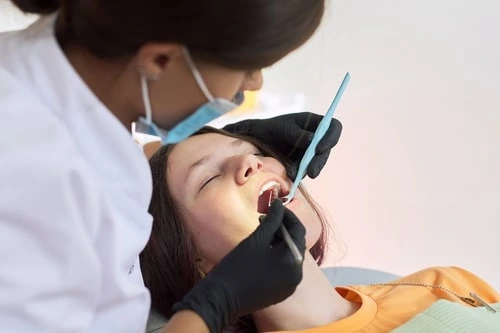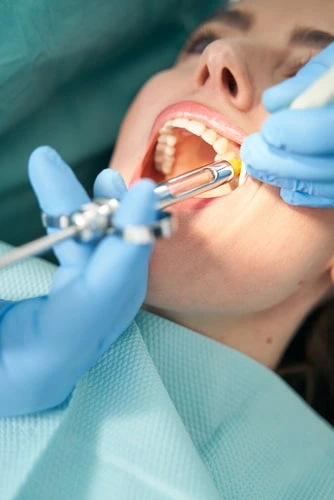What is Sedation? Use in Dental Treatments

People who are afraid of the pain during dental treatment may avoid going to the dentist. However, sedation can eliminate some of these fears. It can be used for everything from simple teeth cleaning procedures to the most difficult dental treatments.
What is Sedation?
Sedation anaesthesia means sedative. The use of sedative medication reduces anxiety, discomfort and pain during certain medical treatments. This method is sometimes given by mouth and sometimes with injected narcotics. Sedative is also used for dental treatments and it is a good solution to overcome dental phobia. Therefore, people who have dentist phobia often prefer it.
Use of Sedation in Dental Treatment
Sedation in dental treatment refers to medication used to help patients relax and feel comfortable during dental procedures. Patients are usually awake, except for those under general anaesthesia. There are different types of sedation used in dentistry. The usage depends on the patient’s condition and treatment method:
- Minimal sedation: You are awake and do not feel any discomfort.
- Moderate sedation: You cannot remember most of the treatment.
- Deep sedation: You are on the edge of consciousness
- General anaesthesia: You are unconscious.
How long does the sedation effect last?
The answer to this question depends on the duration of the dental treatment, as the doctor can increase and adjust the duration of the sedative effect on the patient. It is possible to extend its effect up to 3-4 hours. In shorter dental treatments, the duration of its effect can also be shortened. In other words, we can say that the effect of sedation varies depending on the duration of the treatment to be applied.

What are the Side Effects of Sedation?
It is considered a safe procedure. However, some side effects may occur due to the use of certain medications.
These side effects include the following:
- Feeling tired,
- Rapid heartbeat,
- Slowing of the heart rate,
- Slow reactions,
- Near-term memory loss,
- Low or high blood pressure,
- Headache
Sedation-induced sleep may last 2-3 hours. The patient should be accompanied by a companion until the effect of sedation is over, the patient should rest and not consume alcohol on the same day. You can contact TurkeyCares for information and appointments about dental treatments and find answers to all the questions you wonder about the treatment process. If you would like to schedule an online preliminary consultation and receive a clear and detailed plan regarding your situation, you can contact us via the Turkey Cares Contact page.



 WHATSAPP
WHATSAPP